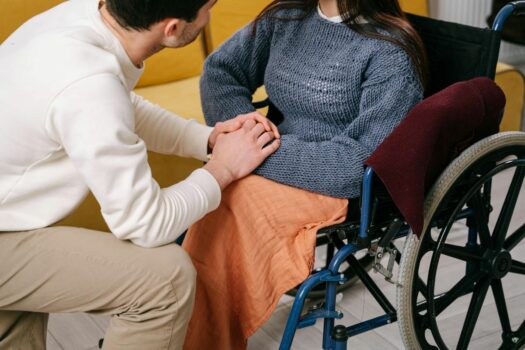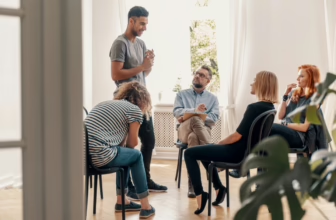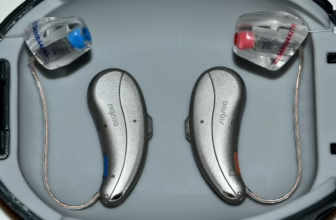While many car accidents lead to minor injuries that heal, sometimes the consequences are far more long-lasting. Some crashes cause serious and permanent disabilities that profoundly impact someone's life going forward.
If your injuries will leave you with a lifelong disability due to another driver's negligence, it's important to know your options for seeking fair compensation. This article will help if you find yourself in this difficult situation and need to take action after being permanently disabled in a car wreck.
Living with a Permanent Disability
Millions of Americans live with some form of permanent physical or mental disability. According to recent government statistics, there are approximately 48.9 million individuals in the United States who have at least one type of lifelong condition or impairment.
Living with a permanent disability brings unique challenges. Permanent disabilities range greatly in their specific effects. Some may limit certain physical abilities, while others impact cognitive or developmental functioning. Regardless of the exact nature, a permanent condition is one that cannot be reversed and will have lifelong consequences. This can involve constraints on activities of daily living as well as long-term effects on employment and financial stability.
Getting injured in an accident and acquiring a permanent disability adds trauma and hardship. Even if a person can continue working despite their injuries, they may struggle with ongoing emotional processing of the event.
Permanent conditions generally require extensive medical care and therapies over the course of a lifetime. Injury sufferers and their families may face severe financial hardships as a result of these rising costs.
Therefore, if you have suffered a permanently disabling injury due to someone else's negligence, it is important to consider legal recourse. Speaking with an experienced personal injury attorney allows for a full assessment of your unique situation and losses.
Pursuing Legal Action with a Personal Injury Lawyer
Whether injuries arise from a slip, a car collision, a defective product, or any other incident, the focus of a personal injury lawyer is to safeguard the legal rights of the affected party. While you prioritize immediate medical attention and rehabilitation, your attorney acts as a buffer, shielding you from disruptions to your recovery or peace of mind.
Take Colorado as an example. Springs Law Group notes that in 2020 alone, Colorado Springs recorded 302 significant injury-related car accidents! In 2022 alone, preliminary data reveals that Colorado experienced its highest number of traffic fatalities in the last 41 years, with 754 lives lost, marking a significant increase in roadway deaths.
With numbers that high, it is clear that compassionate legal assistance is critically important for victims injured through no fault of their own. Navigating the complexities of an injury claim following an accident is far from straightforward.
A seasoned Colorado Springs personal injury lawyer understands these intricate situations inside and out. They can cut through complications to pursue the fairest resolution, making sure their clients receive the justice and compensation they deserve.
Financial Assistance
There are various financial assistance options available for disabled people after an accident.
Individuals with disabilities have several financial assistance options available after an accident. One choice is an Achieving a Better Life Experience (ABLE) savings account.
These special tax-advantaged savings accounts are designed for people living with disabilities and their families. Loved ones such as family members or friends are permitted to contribute funds to the account owned by the individual with a disability.
ABLE account balances can be applied towards important lifelong expenses, including medical care, assistive technologies, education, housing, transportation, employment training, and other basic living costs.
Medicaid offers an additional alternative to health insurance. Medicaid offers health insurance to eligible individuals with disabilities who fulfill specific income thresholds. States have different eligibility and application procedures.
Beyond Medicaid coverage, the federal government offers multiple assistance initiatives for individuals with disabilities and limited financial means.
One example is the Children's Health Insurance Program (CHIP), which helps cover medical expenses for kids in households that cannot afford private health insurance plans.
Another option is the Supplemental Nutrition Assistance Program (SNAP), formerly known as food stamps, which gives funds for purchasing necessary products and meals. An additional option is Temporary Assistance for Needy Families (TANF), a cash aid program for families with dependent children experiencing financial hardship.
SNAP helps pay for groceries, and TANF assists with necessities like rent, mortgage, and medical expenses for unemployed or low-income individuals.
Your local vocational rehabilitation agency can also help identify state-level grants and loans available if vehicle modifications are needed for driving. Additionally, the Social Security Administration website has a benefits finder tool that asks questions to suggest potential government assistance programs.
Two key Social Security programs are Social Security Disability Insurance (SSDI) and Supplemental Security Income (SSI). SSI provides emergency health insurance for those unable to work due to disability who have not paid into Social Security.
SSI is a need-based program overseen by Social Security to assist the elderly and disabled with little income through monthly stipends for expenses like food, clothing, and shelter. Hiring a personal injury lawyer may aid the application process for either program.
Lifestyle Changes
It can be quite difficult to mentally and physically adjust to a new normal. It's critical to pay attention to your body and realize your daily potential.
Some days, minimal activities may cause pain or exhaustion, so having plenty of rest time built in is critical. Determining your sources of discomfort and stopping them will also help you avoid needless suffering.
Discovering new hobbies and interests that don't require extensive physical ability can give your life new purpose and distraction from any hardships. For example, if walking is now tricky, exploring audiobooks, photography, or computer activities might bring fulfillment.
Connecting with a local disability support group provides a vital community where you can share tips on adaptive equipment or accessible recreation ideas. Social interaction can alleviate feelings of isolation, too.
It's normal to experience stages of grief over losing abilities and independence you once had. Speaking to a counselor helps healthily process these emotions. With time and self-care, embracing one's abilities rather than limitations becomes possible. Finding small ways to still contribute valuable skills and qualities to family and friends also uplifts self-esteem on life's challenging days.
Finally, having a lifelong impairment brought on by someone else's carelessness might have a significant effect on you. It is crucial to think about your legal options and consult with a knowledgeable personal injury lawyer.
They can fully assess your situation and losses to pursue fair compensation, which can help cover mounting medical and living expenses. Pursuing justice allows injury victims to gain the resources they deserve following tragic events beyond their control.
While adjusting to life with a disability poses many challenges, focusing on self-care, community support, and discovering fulfilling activities within one's abilities helps make the most of each day.
Follow me down the rabbit hole!
I'm Alice and I live with a dizzying assortment of invisible disabilities, including ADHD and fibromyalgia. I write to raise awareness and end the stigma surrounding mental and chronic illnesses of all kinds.








